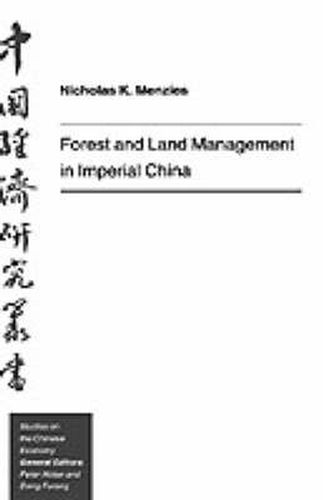Readings Newsletter
Become a Readings Member to make your shopping experience even easier.
Sign in or sign up for free!
You’re not far away from qualifying for FREE standard shipping within Australia
You’ve qualified for FREE standard shipping within Australia
The cart is loading…






This title is printed to order. This book may have been self-published. If so, we cannot guarantee the quality of the content. In the main most books will have gone through the editing process however some may not. We therefore suggest that you be aware of this before ordering this book. If in doubt check either the author or publisher’s details as we are unable to accept any returns unless they are faulty. Please contact us if you have any questions.
Although China is generally considered to have suffered continuous deforestation over most of its history, forests were protected or even planted and maintained for centuries in some places. This study identifies six such cases. It uses historical evidence to show that individuals and communities act to manage resources sustainably for a number of reasons including economic benefit, religious or symbolic purposes, and that sustainability of the management system depends on the form of control exerted over the resource.
$9.00 standard shipping within Australia
FREE standard shipping within Australia for orders over $100.00
Express & International shipping calculated at checkout
This title is printed to order. This book may have been self-published. If so, we cannot guarantee the quality of the content. In the main most books will have gone through the editing process however some may not. We therefore suggest that you be aware of this before ordering this book. If in doubt check either the author or publisher’s details as we are unable to accept any returns unless they are faulty. Please contact us if you have any questions.
Although China is generally considered to have suffered continuous deforestation over most of its history, forests were protected or even planted and maintained for centuries in some places. This study identifies six such cases. It uses historical evidence to show that individuals and communities act to manage resources sustainably for a number of reasons including economic benefit, religious or symbolic purposes, and that sustainability of the management system depends on the form of control exerted over the resource.